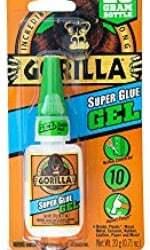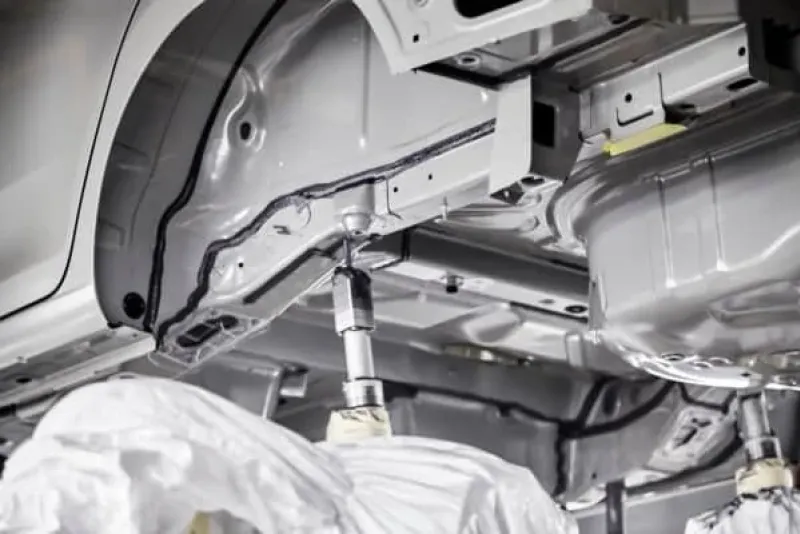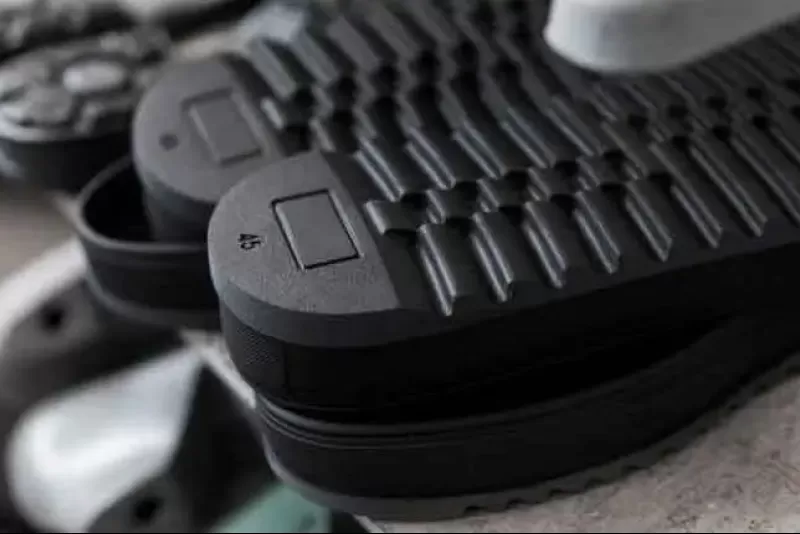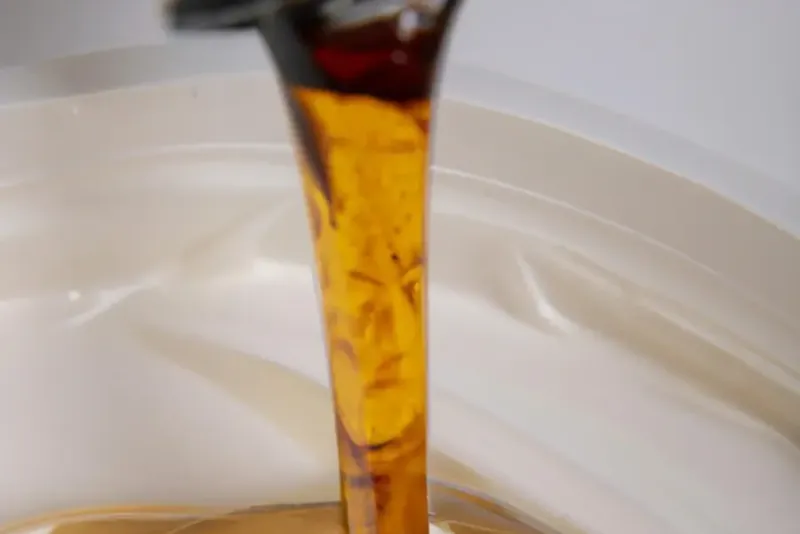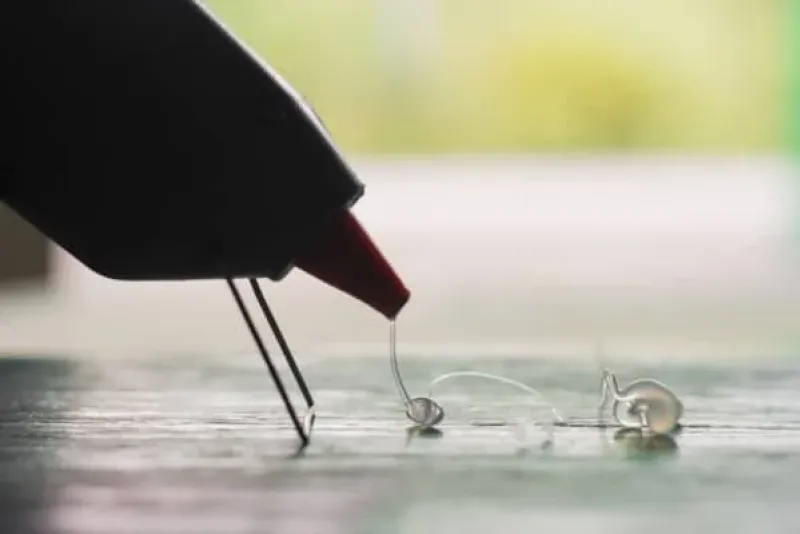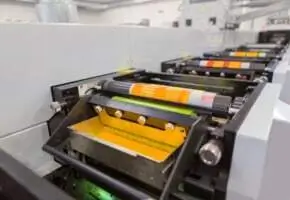Super glue and other adhesives for small home repairs
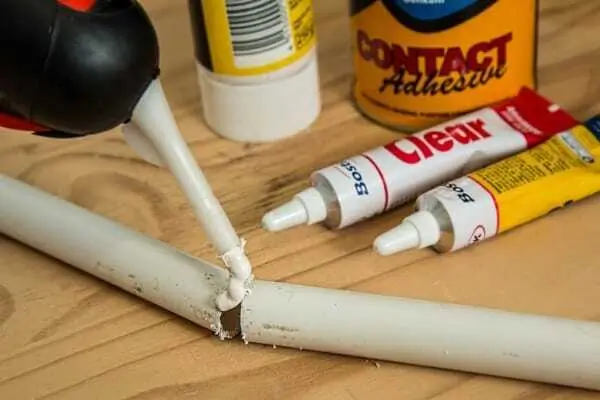
Repair instead of throwing away - super glue and other adhesives for DIYers
Glues are used almost everywhere from heavy industrial processes to everyday consumer goods and small home repairs. Adhesive like super glue is also a great thing to have at home, in the car or somewhere else within hand's reach. There are several types of adhesives that are perfect for home repairs and DIY projects. They can save you money as you can repair broken items without needing to buy new ones.
Super glue is by far the most well-known adhesive used in repairs, yet it is not the only option. There are numerous adhesives that can be used for a wide variety of applications. Here we will take a look at the most common glues used in households including super glue, epoxy, wood adhesive and silicone based glues.
Super glue - the best adhesive for small repairs
Substrates: Metal, rubber, wood, ceramic, plastic and porcelain
Super glue is an adhesive that ended up on the list of most useful inventions in the 20th century. And that is no wonder, as the cyanoacrylate based glue bonds almost anything as long as the surfaces are small and flat. Super glues not only are superior repair adhesives to use at home, but industrial super glue also performs well even in heavy duty applications.
Super glue properties and curing
Generally, there are two types of super glue: gel and glue. Both of these have superior bonding power. The difference is that gel is less likely to drip and leak. Super glue is often called instant glue as it cures in a matter of seconds. You should, however, not be fooled by the very short curing as the full cure may take up to 24 hours. Therefore, after gluing the parts together, you should let the adhesive cure longer and keep the parts together with clamps or zip ties to preserve the true super glue properties.
Where to use instant glue
Most super glues are suitable for a wide range of substrates and they are ideal for glueing broken dishes, shoes, tears in car upholstery, disconnected car mirrors, handles, hoses and many more applications. You can even super glue metal to wood, an application where other general repair adhesives often fail. Just make sure the manufacturer confirms the use of their instant glue product on the specific material.
The best super glue products
As instant glue is a preferred product for many applications, multiple brands offer these products. Although everyone has their own preferences, two brands can be said to be more popular than the rest: Gorilla and Loctite.
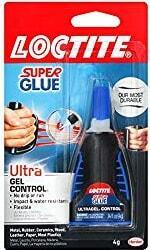 Loctite Ultra Gel Control Super Glue
Loctite Ultra Gel Control Super Glue
Where NOT to use super glue
Even though super glue is very strong, it is not the best choice for filling gaps and cracks. This is due to the fact that super glue forms thin, transparent layers which are not hard enough to remain in form. For gap and crack filling, you could use super epoxy glue instead.
Strong bonds on large surfaces with epoxy glue
Substrates: Metal, plastic, wood, fiberglass and composite materials
Epoxy is one of the strongest adhesives for industrial and consumer use. It is usually a two component system which is sold a set of resin and hardener packed separately. Prior to application, the two components must be mixed with each other on a surface like newspaper or cardboard. When the components are mixed, the chemical reaction that results in curing strats. Therefore, the epoxy glue must be applied soon after mixing. Note that also single comonent, easy to apply epoxies exist: these are sometimes called super epoxy glue, as the properties resemble those of super glue.
Epoxy curing time
Epoxy cures when two components are mixed with each other and a crosslinking process is started. Some epoxy products cure faster than others however, the rule of thumb is the longer the curing time the stronger the bond. Like super glue, epoxy should be let cure for 24 hours to reach its full strength. Use clamps or zip ties to create pressure and keep the parts in place until the adhesive is fully cured.
Where to use epoxy glues
Epoxy glues work the best where super glues don´t: large surfaces and crack and gap filling are common applications. Epoxy cures into a plastic like, transparent or opaque bond which is hard to beat it toughness. Therefore, epoxy beats super glue in strength also when bonding metal or wood. Common epoxy applications include shoe repairs, fixing handles (for example screwdrivers) and minor car repairs including disconnected mirrors and patch cracked lights.
Best epoxy products for home repairs
Some of the most popular epoxy glues for home repairs include Gorilla two part epoxy and Bob Smith quick-cure epoxy..
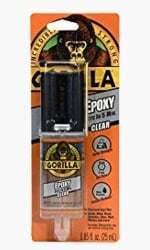 Gorilla 2 Part Epoxy, 5 Minute Set, .85 ounce Syringe, Clear
Gorilla 2 Part Epoxy, 5 Minute Set, .85 ounce Syringe, Clear
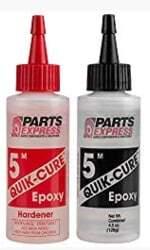 Bob Smith Industries BSI-201 Quik-Cure Epoxy (4.5 oz. Combined)
Bob Smith Industries BSI-201 Quik-Cure Epoxy (4.5 oz. Combined)
Wood adhesive for crafts and repairs
Substrates: wood
Wood is a porous material and requires a special adhesive which soaks into the pores. The wood glues are used for wood to wood bonding and it is common for crafts and home repairs. Wood glue is usually white and becomes transparent as it hardens. The glue should be applied by spreading an even amount on both surfaces that are about to be banded. After that the parts are connected and should be clamped together to ensure they stay in place till the glues is fully cured.
Curing wood glue
Like for super glue and epoxy, the longer the product is let cure, the stronger the bond. Many products are available and they all have specific curing times. Stick with the manufacturer's advice to achieve the best result.
Get the best wood glue products
Titebond III ultimate wood glue and Gorilla wood glue are among the most popular wood glue products as they are easy to apply and form strong transparent bonds in wood to wood applications.
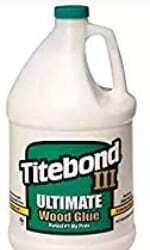 Titebond 1416 III Ultimate Wood Glue, 1-Gallon (2-(Pack))
Titebond 1416 III Ultimate Wood Glue, 1-Gallon (2-(Pack))
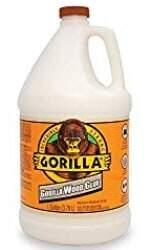 Gorilla 6231501 Gallon Glue, Natural Wood Color
Gorilla 6231501 Gallon Glue, Natural Wood Color
Silicone glue for watertight bonds
Substrates: Glass, plastic, metal and wood
Better known as sealant, silicone creates watertight bonds which resist chemicals and weather. Therefore, the best use of silicone glue is sealing there where adhesive properties are needed, too. Silicone glues cure to form a transparent or colored bond which remains flexible under any circumstances.
Uses of silicone glue
As mentioned, silicone glue is often used in applications that require both: sealing and bonding. Common uses of silicone glue in home repair projects include bathrooms and glass to glass connections such as in building and repairing aquariums. Silicone is also suitable for outdoor applications thanks to its superior water and weather resistance. Other uses are door frames, vinyl tops, roofs, shoes, toys and many more.
Best brands to work with
Permatex clear RTV silicone adhesive sealant and loctite clear silicone waterproof sealant are two products that work extremely well when silicone is the desired material.
![]() Permatex 80050 Clear RTV Silicone Adhesive Sealant, 3 oz
Permatex 80050 Clear RTV Silicone Adhesive Sealant, 3 oz
![]() Loctite Clear Silicone Waterproof Sealant 2.7-Ounce Tube (908570)
Loctite Clear Silicone Waterproof Sealant 2.7-Ounce Tube (908570)
What solution are you looking for?
We are specialized in the about adhesives. Need the best products or advice? Then please leave your details and we will get in touch.
